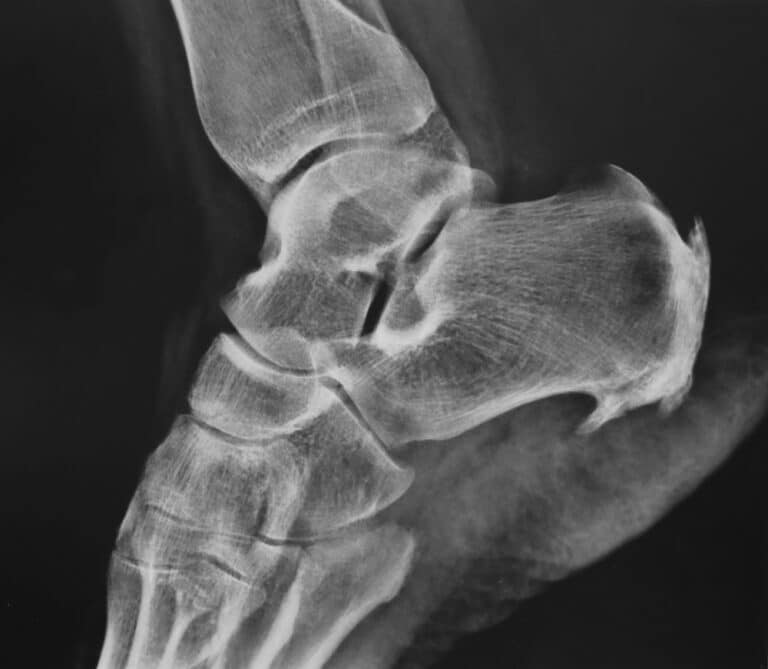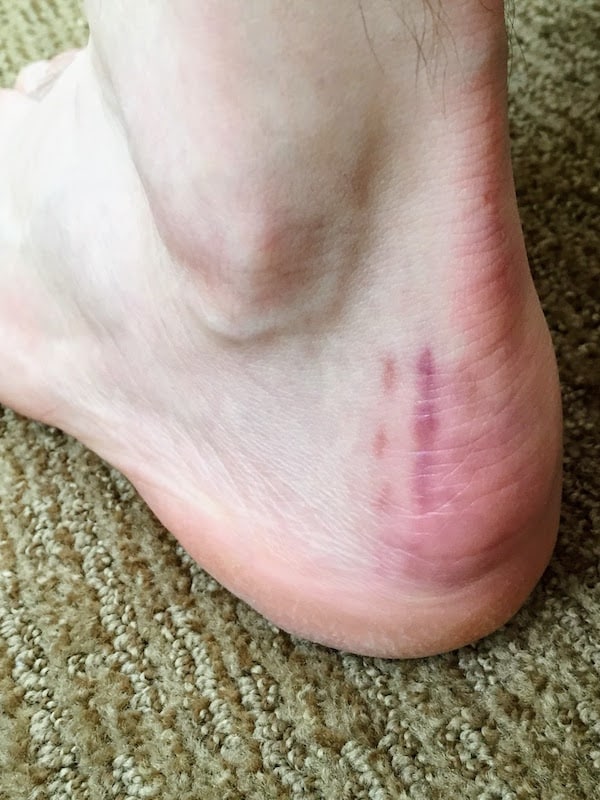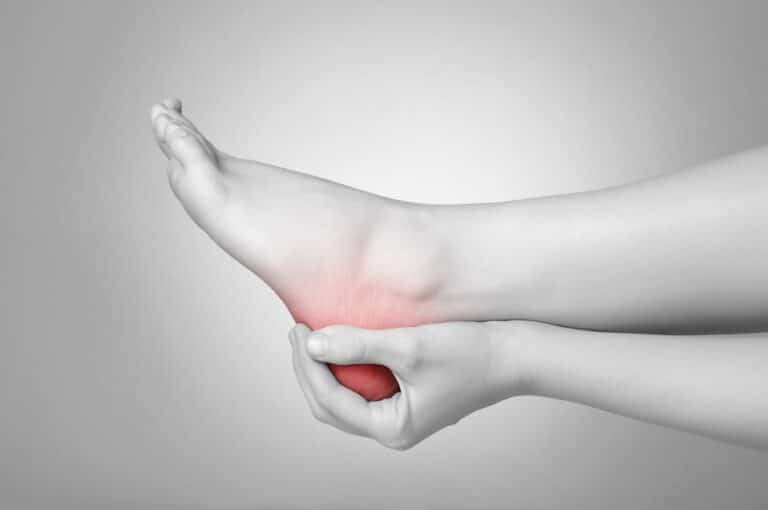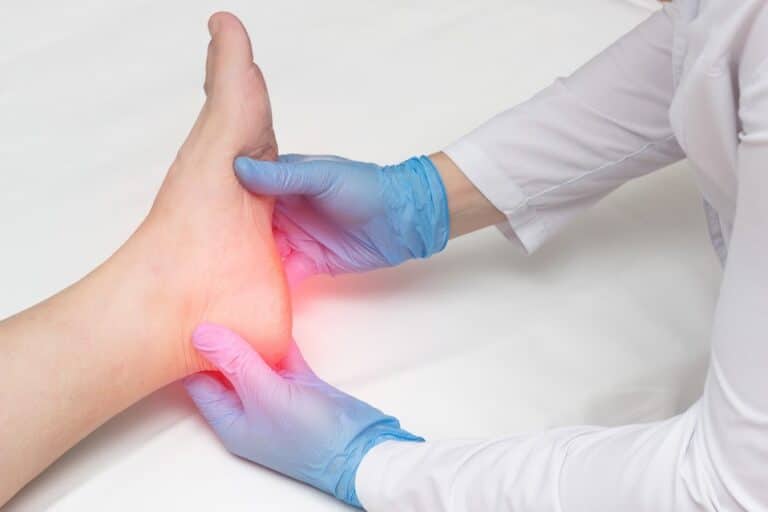Flat feet condition is a foot deformity that often occurs in different life periods and in people with different lifestyles. But why are flat feet bad, and can this deformity have severe consequences? Read on if you wish to know more about this condition and its possible impact on your overall health.
Flat feet, also known as pes planus, can lead to several problems, including:
- Pain: Flat feet can cause pain in the feet, ankles, knees, and hips.
- Overuse injuries: Flat feet can increase the risk of overuse injuries in the feet and legs.
- Stability: Flat feet can affect the stability of the feet and increase the risk of falls.
- Posture: Flat feet can also affect posture and alignment of the entire body.
- Difficulty in standing or walking for long periods: Flat feet can lead to fatigue and discomfort when standing or walking for long periods of time.
- Difficulty in fitting shoes: Finding shoes that fit comfortably and provide enough support can be difficult for people with flat feet.
It’s important to note that flat feet are not always problematic, some people can have asymptomatic flat feet. In some cases, flat feet can be treated with supportive shoes, orthotic inserts, physical therapy and other conservative methods. However, in some cases, it may require surgical intervention. Consultation with a podiatrist or orthopedic specialist would be the best way to evaluate the severity of the condition and suggest the best treatment options.
Special Offer: $500 OFF on Flat Feet Surgery!
What Are the Symptoms of Flat Feet?
Flat feet are a common foot condition. It occurs when the inside arches of the feet flatten once the pressure is placed on them, like when a person stands up and walks. Flat feet imply that the entire surface of the sole touches the ground.
Flat feet condition is often symptomless. However, sometimes it can cause pain, particularly in the arch or heel area, which only worsens with the added activity. Additionally, a person can experience swelling on the inside of the ankle. Once the pain occurs, this condition must be evaluated and treated appropriately.
Factors That Can Increase the Risk
It’s common for this condition to occur in toddlers (or infants) since the foot’s arch has yet to be developed. However, for some, the arches never develop – which can cause further issues.
This collapse, however, can also occur later in life, after an injury, or simply due to wear and tear over time. The tendon that is supposed to support the arch can weaken over the years, which causes this condition to develop.
Still, note that there are some risk factors that can increase the chance of flatfoot occurrences, such as rheumatoid arthritis and diabetes.
How Flat Feet Affect Your Overall Health?
Most people with a flatfoot condition can have an active lifestyle without any limitations. However, it doesn’t mean other body parts won’t be affected.
The weight distribution in people who have flat feet is different than in people with healthy feet – it’s uneven and insufficient, with more pressure placed on the inside of the foot. It causes other parts of the foot to suffer.
Moreover, in most cases, having flat feet can cause other body parts to move to form their healthy position, causing the inward twist of thigh bones and the shin and indirectly placing stress on the hips, knees, lower back, and ankles.

Why Are Flat Feet Bad for Your Health?
As mentioned above, flat feet can’t provide good support for the weight once a person stands, walks, or runs – which can cause problems seemingly unrelated to this condition. That is why many specialists recommend treatment, which can range from wearing special shoes and doing foot exercises to having foot surgery.
Here are some of the ways having flat feet can affect your health and become highly inconvenient.
Chronic Muscle Strain
Since flat feet can’t keep the body stable as well as healthy ones, the muscles need to compensate for this lack of stability, which can cause a chronic muscle stain to occur. The pain may not manifest during everyday activities but can increase significantly with a higher activity level.
Leg and Back Pain
Flat feet can’t provide good support for a healthy posture. As mentioned earlier, it can cause the legs (especially the lower parts) to rotate inwards. As a result, a person with a flatfoot condition can experience leg or back pain that worsens over time.
Musculoskeletal Problems
Bad posture, alongside the abnormal gait, can cause musculoskeletal problems, as well. Therefore, this condition can increase the risk of having joint problems. Moreover, people with flat feet are more prone to foot, ankle, hip, and knee pain and injuries.
Talk to a Foot Specialist About All the Reasons Why Flat Feet Are Bad
The flat feet condition needs to be diagnosed by an expert. People specialized in this field of medicine can inform you further about this deformity, the impact it can have on your health, and possible treatments. Our team at Luxe Foot Surgery will be happy to answer any questions you may have and provide you with a consultation. All you have to do is contact us over the phone or fill out an inquiry at our website.
FAQ
Is Flat Feet a Serious Problem?
Having flat feet doesn’t need to have any consequences on your lifestyle, but it can cause health problems down the road. Therefore, if you suspect you have this deformity, don’t hesitate to ask for a specialist’s advice.
Are Flat Feet Good for Anything?
Some claim that having flat feet can be an advantage, like in some athletic activities, such as combat sports and lifting weights. However, remember that it can still pose a risk to your overall health if you don’t approach this issue with caution.




